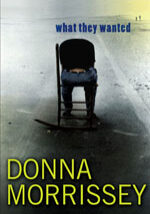In 701 B.C. the Assyrian empire was in its ascendancy. It had already vanquished the kingdom of Israel to the north including the capital at Samaria. It then prepared an assault on Judah and its capital at Jerusalem.
But in one of those significant events that changes the course of world history, Assyria was repelled. Jerusalem was saved until 586 B.C. when the Babylonians sacked the city, forcing its leadership class into exile.
Henry Aubin, in a major feat of scholarship, determines that Jerusalem was aided by a Kushite army from Africa which had marched northeast from the Nile valley. While the Bible attributes the Assyrian retreat to an angel and secular commentators cite pestilence, Aubin, in a meticulously documented work, demonstrates that an alliance with the African nation of Kush bolstered Jerusalem’s defences.
Kush, also known as Nubia, was located in what is now southern Egypt and northern Sudan. A monarchy that existed for more than 1000 years, from 900 B.C. to A.D. 350, Kushites held sway over Egypt from 712 B.C. to about 660 B.C. Of Egypt’s 31 dynasties, this, the 25th Dynasty, is the only one that all scholars agree, was black.
The commander of the Kushite expeditionary force was Taharqa (or as the Bible calls him Tirhakah). This Kushite prince, who had his own interests in halting Assyrian expansion, likely caught the aggressors by surprise as they prepared their siege of Jerusalem.
Aubin offers a thrilling military history and a stirring political analysis of the ancient world. He also sees the event as influential over the centuries.
The Kushite rescue of the Hebrew kingdom of Judah enabled the fragile, war-ravaged state to endure, to nurse itself back to economic and demographic health, and allowed the Hebrew religion, Yahwism, to evolve within the next several centuries into Judaism. Thus emerged the monotheistic trunk supporting Christianity and Islam.

What They Wanted
More Reviews:
“Donna Morrissey is a wonderfully gifted writer. The setting of her books is Newfoundland, but their appeal is universal. She unashamedly cares for her characters and sees them as real people with real lives worth caring and reading about. To read one of her books is to wind up laughing or crying or somehow doing both at once.”
Wayne Johnston
“I am really excited about Donna Morrissey’s new novel. I have read all her other books – there are three of them – including the 2005 Commonwealth Prize-nominated Sylvanus Now… Having heard Morrissey read from this novel, I can hear her voice, and she makes me cry and she makes me laugh, from Newfoundland to northern Alberta.”
Janet North
Westminster Books
“Morrissey’s depiction of Sylvie’s agony when tragedy descends is the most moving description of shocked grief I have ever encountered. Equally wrenching is Adelaide’s act of confession, by which she delivers her daughter from that dark night. I leave this novel caring about these characters as if they had entered my own life, and hoping – as the last pages hint – to meet them again. Morrissey has an authentic gift not only for creating characters who live off the page, but also for bringing alive the sweep of time and fortune that is bigger than any of us. These forces are not only history and material circumstance, but also the human bonds that, in a tangled and imperfect way, shape our spiritual destiny.”
Literary Review of Canada
“Told with her familiar firecracker prose and gift for drenching her readers in the sights, sounds, and textures of her settings, this novel is Morrissey, if not at her finest, then pretty darn close.”
Quill & Quire
“Morrissey is also an unapologetically emotional writer, and she succeeds at conveying the moods of men and women caught in a heartbreaking bind between what they want and what they need.”
The Gazette, Montreal
“What They Wanted is Morrissey’s wisest, strongest, and most assured novel to date and it is classic Morrissey. She creates words and images that are dazzling in their originality. The novel pounds with the sound of the sea and the incessant noise of the machines and jimmies that suck the oil out of the depths of Alberta. The last third of the novel is transcendent.”
The Chronicle Herald, Halifax
“This novel reinforces Donna Morrissey’s reputation as a gifted writer and storyteller. It is rich with descriptive metaphors and dialogue and it is as heartwarming as it is heartbreaking.”
Atlantic Books Today

Donna Morrissey is honoured by her hometown, The Beaches, Newfoundland, Canada, the setting of her early novels.